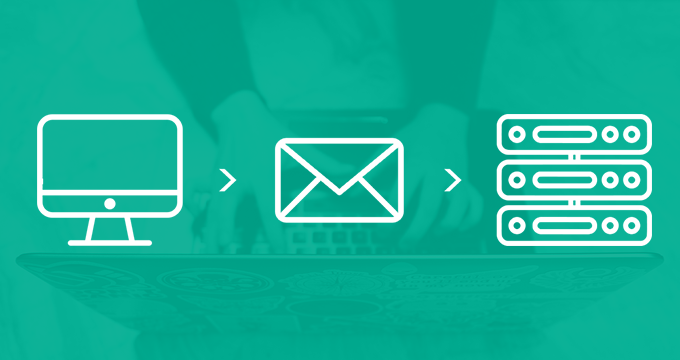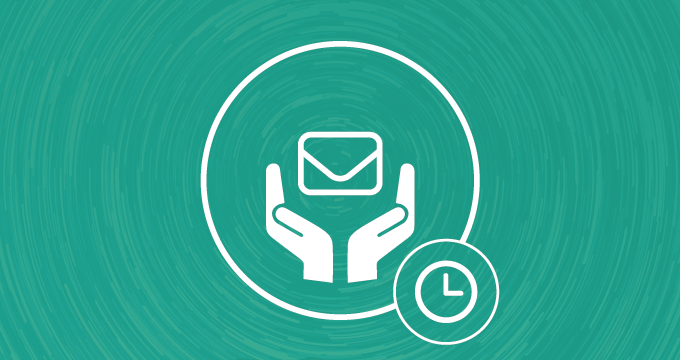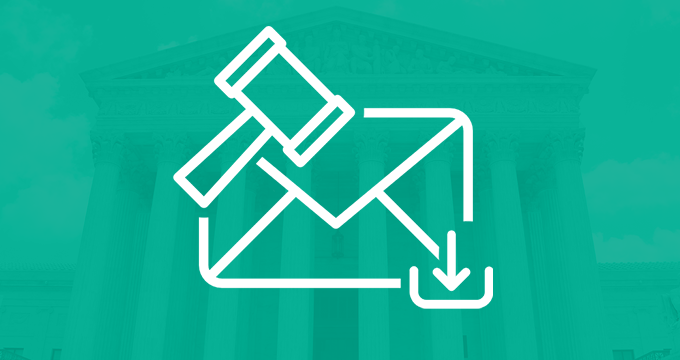Despite the rapid advance of platforms like Slack or Zoom, email remains the backbone of today’s business communication, with every bit of critical information going through the company’s email system sooner or later.
Due to ongoing email dependence, email archiving and email backup are vital for business continuity, especially when compliance and ediscovery are a big consideration for a business.
While email archiving and backup are two related data management practices, there’s still confusion regarding the differences between archive vs backup.
Here are the two concepts spelled out and what’s the difference.
What Is the Difference Between Email Backup and Archive?
Although they might seem similar and interchangeable these two terms have distinct differences between them.
Before answering the question, we first need to define both email backup and archiving.
Email Backup
Email backup is an exact copy of your email database at a specific point in time. It involves making periodic copies of all your emails, attachments, and related data. Think of it like taking a snapshot of your emails.
Backups are used to protect you from hardware and cloud failures, data corruption, data loss, and many other situations that can compromise your email data.
It provides you with a way to restore your lost data from a copy that was stored on a different hardware or cloud database.
Backups are straightforward in nature and they do their job of protecting you from complete data loss well, but their process doesn’t let you organize or index information in your email database making them less useful if you are looking to search or manipulate data.
Email Archiving
Email archiving is a comprehensive and organized process for retaining email data for extended periods of time, often years or even decades.
Unlike email backup, archiving occurs on an item-by-item basis instead of a periodic system-wide backup which may result in loss of data. In other words, archiving happens in real-time by capturing, indexing, and securing records in a protected storage space.
An email archive also saves all components of email, from their content, attachments, and documents all the way to metadata. Some archives go beyond email and let you store social media, WhatsApp, and mobile messages.
Having emails stored in an archive gives users the ability to search and organize stored information which may be crucial in many situations when businesses need specific pieces of information.
Email archiving is designed for large-scale data retention, regulatory compliance, and ediscovery purposes.
Framing the difference
To put it simply, an email backup creates a copy of your email database for immediate recovery while an email archive captures your email data and stores it in an organized database from which you can retrieve select data.
So an archive fills the same role as a backup but with a greater degree of searchability and organization, but the same can’t be said for backups which don’t provide end-to-end searchability and indexed storage.
The main differences are:
- Backup is designed for short-term data recovery while an archive is a long-term solution.
- Archiving is compliance-driven while backups are meant for data loss prevention.
- Archiving has advanced search and ediscovery capabilities while backups are limited.
- Backups restore entire email systems while archives do the same with the ability to target specific emails.
- Backups require more storage as the content is copied while archives store only one instance of an email.
- Archived data is well organized while backup data isn’t.
As you can see there’s a lot going for email archiving, but is it a better choice for your business?
Let’s delve deeper.
Data Archiving vs. Backup: Why Archiving Is Better
1. Reduced strain on your email server
As archiving emails takes all your email information and stores it on a separate server, it frees up space on your working email server.
This process significantly speeds up your system efficiency and performance as you are left with only the recent emails determined by your email retention policy.
2. Reduced email storage and recovery costs
Recovering fails from a backup can be an extremely time-consuming and costly process as you are essentially copying the whole database from one server to another.
With email archiving, all of your emails are actively stored on a different server with the ability to only retrieve the ones you need.
Another huge money saver is the automated data deletion that you can set up letting the system delete emails after their compliance date expires, saving you both space and money.
3. Improved staff productivity
Email archiving solutions can be set up to allow end users access to personal email by assigning them various access permissions and by defining user roles in the organization.
By allowing this, end users can recover their deleted or misplaced emails independently, with no additional IT resources required.
Contrary to this, email backup solutions are controlled and accessed by IT administrators only.
4. Efficient storage management
Email backup can quickly lead to a cluttered and unmanageable repository making it impossible to find specific emails or attachments when you need them.
In contrast, email archives are designed for efficient data management which allows you to categorize, search, and retrieve emails very quickly.
This saves you a lot of time in case of information requests or just trying to find a critical document.
5. Long-term data preservation
As mentioned, backups are a short-term solution to data loss and corruption and require you to create new backups from time to time.
On the other hand, archiving is a long-term preserver of valuable data, we’re talking decades of email preservation that you can access any time you need it.
The best part is, that data is archived automatically without the need for human intervention, unlike backups.
| Learn all about the importance of archiving your email for better business compliance and ediscovery. |
Combining Backup and Archive for Comprehensive Email Management
The question poses itself naturally. Should you back up your archive for even more safety?
The concept of hybrid email management is nothing new and involves both backup and archiving solutions to address different aspects of your email ecosystem.
Today, most email archiving solutions enable you to do both.
Once implemented, an email archiving solution undergoes a full backup of initial data which allows it to create a snapshot of the entire archive.
After the initial backup, the solution will automatically copy the data that has changed since the last backup operation. This is called incremental backup, and it is used to make sure you always have the latest image of your messages on your backup server.
These backup intervals can also be specified by the administrator allowing for undisturbed backups.
So, archiving solutions solve both problems while being very cost-effective as they are cloud-based software.
But does this mean that you also need an on-premises backup?
Not necessarily, most solutions are well prepared for any potential data corruption, but if you are looking for a 100% proof way, have your data on the cloud and in on-prem cold storage.
Conclusion
Email archiving and backups are very important aspects of email data management, one helps protect you from corruption while the other gives you data management options.
It’s not a question about archive vs. backup, but archive and backup as they are two sides of the same coin.
But if you are looking for one solution to both archiving and backup problems then cloud email archiving is the best option for your business.
| Jatheon provides you with a cloud-archiving solution that will keep your business compliant and speed up your ediscovery. Keep your email data safe and away from any potential disasters. |











